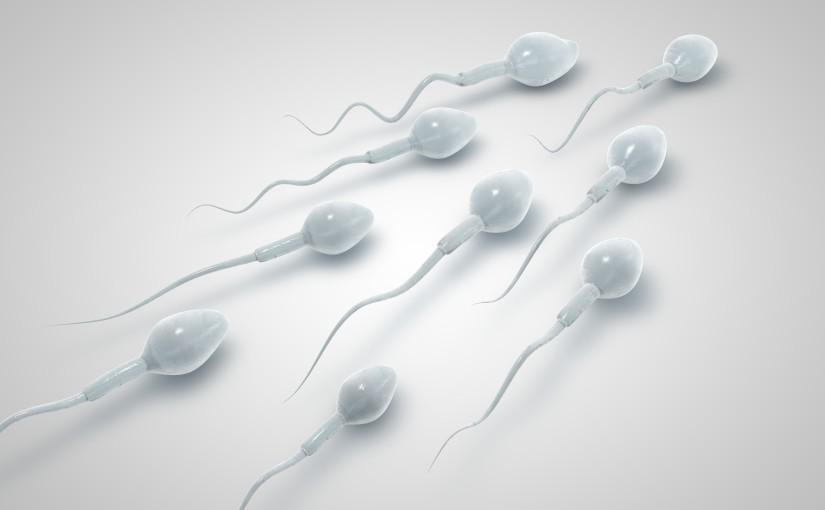How to Increase Sperm Quality

Men play half the role in creating a pregnancy. While most men assume that their sperm is healthy and ready to fertilize an egg, the lifestyle that they are leading may be a reason to believe otherwise. Having high-quality sperm is vital, and boosting the quality of the sperm can be done in many natural ways. Before I write about how to increase the quality of sperm, let’s discuss everything that could be causing the sperm to suffer.

What is Killing Your Sperm?
1/5th of men have a low sperm count.
Pesticides
Not only are you exposed to hundreds (if not thousands) of toxins each and every day, but some of the most commonly-prescribed drugs, having a poor diet, and common vitamin deficiencies have also been linked to reducing fertility. The Institute of Science in Society has found that Roundup (The pesticide sprayed on our non-organic food crops throughout the country) may be triggering a huge decline in fertility.
The average sperm counts have dropped by nearly half in the last 50 years, even among men without fertility problems. It was also noted that 20% of young European men have sperm counts below the World Health Organization reference level of 20 m/ml, and 40% have levels below 40 m/ml, which is associated with prolonging the time to pregnancy. This impacts semen quality and overall fertility.
Technology
Exposure to EMR from cell phones, iPads, and other devices lowers sperm motility by 8% and sperm viability by 9%. There are numerous studies showing that cell phone radiation can affect men's sperm count and the quality and motility of their sperm. It’s been shown that sperm count is reduced by 50% in men who carry their phone in their pant pocket for four hours a day. The testicular barrier, that protects sperm, is the most sensitive of tissues in the body and is 100 times more absorbent than the rest of the skin on the body. Besides sperm count and function, the mitochondrial DNA of sperm are damaged 3x more if exposed to cell phone radiation.
Fluoride
Over two-thirds of the United States’ drinking water supplies are fluoridated. Research has long linked fluoride in drinking water with sperm damage and other threats to reproductive health; although many Americans are not aware of this. Men may be putting their fertility at risk with every sip of water from the tap. The Fluoride Action Network (FAN) reports that Fluoride causes:
| Decreases in testosterone levels | Reduced sperm motility | Altered sperm morphology |
| Reduced sperm quantity | Increased oxidative stress | Reduced capacity to breed |
Chemicals
Everyday chemicals may be lowering your sperm count, altering DNA sperm data, or causing sperm mobility problems. Hormone-disrupting chemicals can be found in personal care products, food containers, medical tubing, toys, and more. Bisphenol-A (BPA) and phthalates are two of the most well-known chemicals.
Bisphenol A (BPA)
BPA is a common ingredient in many plastics, including those in water bottles and children's toys, as well as the lining of most canned goods. It was recently discovered that even many cash register receipts contain this chemical.
BPA is so pervasive it has been detected in the umbilical cord blood of 90 percent of newborn infants tested!
Recent studies have confirmed that BPA is affecting male fertility, primarily by reducing semen quality. One study, which provides the first epidemiological evidence of an adverse effect on semen quality found fluoride causes:
- Decreased sperm concentration
- Decreased total sperm count
- Decreased sperm vitality
- Decreased sperm motility
Phthalates
Exposure to phthalates can lead to incomplete testicular descent in fetuses, reduced sperm counts, testicular atrophy or structural abnormality and inflammation in newborns. Phthalates are commonly found in vinyl flooring, detergents, automotive plastics, soap, shampoo, deodorants, fragrances, hair spray, nail polish, plastic bags, food packaging, etc.
Vitamin D Deficiency
“Optimal” Levels of Vitamin D are higher than the “Normal Range” that most doctors have come to use. One-third of men have levels that fall below this category. Sperm has a vitamin D receptor, and it is involved in signaling between cells in the reproductive system. A low Vitamin D level leads to disrupted signals.
Obesity
The Journal of Andrology explains how metabolic syndrome (characterized by obesity and insulin resistance) is connected with reduced fertility as follows:
"Adverse effects of obesity on male fertility are postulated to occur through several mechanisms. First, peripheral conversion of testosterone to estrogen in excess peripheral adipose tissue may lead to secondary hypogonadism through hypothalamic-pituitary-gonadal axis inhibition. Second, oxidative stress at the level of the testicular microenvironment may result in decreased spermatogenesis and sperm damage. Lastly, the accumulation of suprapubic and inner thigh fat may result in increased scrotal temperatures in severely obese men."
Other Sperm Killers:
- Bovine growth hormones are commonly added to commercial dairy and have been implicated as a contributor to premature puberty in adolescence as well as a problem for sperm.
- Non-fermented soy products are loaded with hormone-like substances.
- MSG is a food additive that's been linked to reduced fertility.
- Heated car seats and heating pads increase testicular temperatures enough to decrease sperm production.
- Antidepressants have known Common side effects which include impotence and delayed ejaculation
Increasing Sperm Quality Through Lifestyle
It can seem like an impossible task, but there are a number of practical strategies you can implement to limit your exposure to endocrine disruptors and other common toxins.- Reconsider carrying your cell phone in your pocket, in close proximity to your reproductive organs.
- Purchase and consume organic produce and free-range, organic foods to reduce your exposure to pesticides and fertilizers.
- Rather than eating conventional or farm-raised fish, which are often heavily contaminated with EDCs, PCBs and mercury, supplement with a high-quality purified fish or krill oil, or eat fish that is wild-caught and lab tested for purity.
- Eat mostly raw, fresh foods, steering clear of processed, prepackaged foods of all kinds. This way you automatically avoid hidden fructose and artificial food additives of all kinds, including dangerous artificial sweeteners, food coloring, and MSG.
- Store your food and beverages in glass rather than plastic, and avoid using plastic wrap.
- Have your tap water tested and, if contaminants are found, install an appropriate water filter on all your faucets (even those in your shower or bath).
- Only use natural cleaning products in your home.
- Switch over to natural brands of toiletries such as shampoo, toothpaste, antiperspirants, and cosmetics.
- Avoid using artificial air fresheners, dryer sheets, fabric softeners or other synthetic fragrances.
- Replace your Teflon pots and pans with ceramic or glass cookware.
- When redoing your home, look for "green," toxin-free alternatives in lieu of regular paint and vinyl floor coverings.
- Avoid using pesticides and herbicides around your home, and opt for organic varieties instead.
- Replace your vinyl shower curtain with one made of fabric or install glass shower doors.
Increasing Sperm Quality Through Diet
Stay away from GMO, non-organic food options, and any processed foods whenever possible. Consume a healthy diet, rich in healthy fats and antioxidants, and low in sugar and grains. Reduce or eliminate grains and gluten along with sugars, especially fructose.
Include as many of the following vitamins in your daily diet as possible:
- Vitamin D: essential for the healthy development of the nucleus of the sperm cell, and helps maintain semen quality and sperm count. Vitamin D also increases levels of testosterone, which may boost libido
- Vitamin C -- In one study, infertile men who were given 1,000 mg of vitamin C twice daily improved their sperm count, sperm motility, and sperm morphology. The researchers stated vitamin C could be important as an additional supplement to improve semen quality and increase chances of a natural conception. Vitamin C is abundant in oranges, strawberries and sweet potatoes.
- Vitamin E & Selenium -- Vitamin E and selenium can also improve sperm motility. One study published in the Archives of Andrology confirmed the protective and beneficial effects of vitamin E and selenium on semen quality, and supported their use in male infertility treatment.
- B12 -- Men who are deficient in vitamin B12 can also suffer from poor motility.
- Zinc -- If low testosterone is the cause, zinc may help. Good sources of zinc include nuts and seeds.
Remember that it takes about three months for sperm quality to increase. (The average time for maturation is 74 days.)
Documentary on the disappearing male: https://vimeo.com/15346778
References:
Other Studies to Read:







